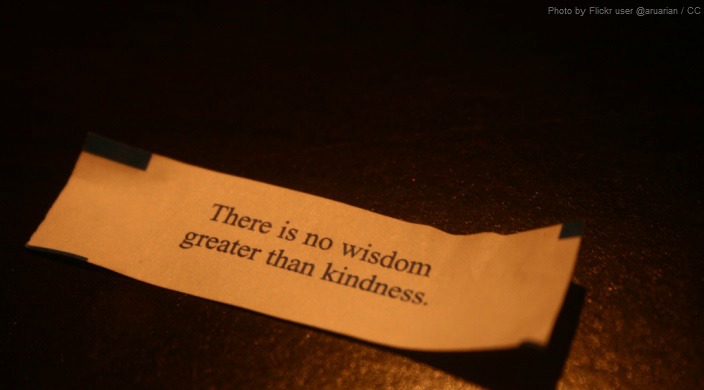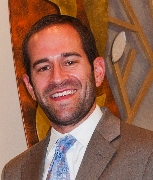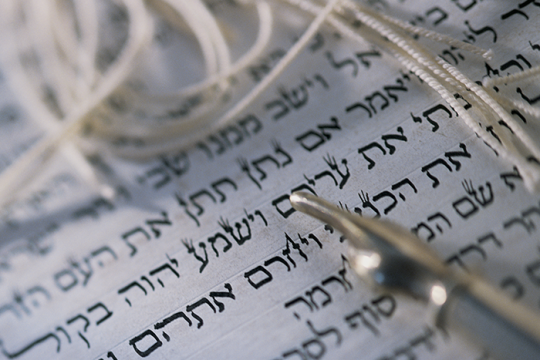
I have this terrible image I can’t quite shake, of walking into high school on the first day and being terrified.
More than 2,000 people attended Cherry Hill High School East when I was a student there. The image I carry with me, years later, is of a place that felt foreign, where everyone was older and intimidating. Halls that seemed to stretch for miles, teachers looming large over me, textbooks as thick as encyclopedias.
When the Israelites arrived at the Promised Land, they noted that they felt like grasshoppers next to the residents there. This is exactly how I felt. I will forever remember those daunting days, when I was bullied for being smaller, shorter, and Jewish (yes, even in New Jersey).
And so I felt small. I felt weak. Worst of all, I felt constantly judged.
As Jews, we are told to remember hardship. We are told: Do not forget Pharoah, Amalek, Haman. Remember the story. Remember what you endured. We carry our personal and collective scars alongside our most sacred possessions, and we use those scars as motivation to make a better life for ourselves and for our kids.
I see this in our own community. I see it in those who have come back from illness, those who have served in our armed forces, those who have experienced loss or faced hate. It is because of our own experience, historically and personally, that we speak out now when we see injustice. We urge racial equality, marriage equality, an end to the bullying and vicious anti-Semitism. And we do so in part of those scars we have, those wide halls of strife we know so well.
Along with challenging us to be there for one other, the Torah also urges us to not be so quick to judge.
We are quick to judge others for what they say or what they don’t, for how they look or how they don’t, for what they post on Facebook, where they spend their time, how they raise their children, where they eat, what they eat.
And so, too, are we judged – for how we grieve or celebrate, what we wear, what we read or what we don’t. We are judged for our political leanings, for how and where we spend our money, for the friends we have or the friends we don’t.
How many of us jumped on Brian Williams when we learned he had not been entirely honest while reporting on Iraq? How many of us were incensed, furious, even apoplectic?
“How dare he!” we said.
Author Anne Lamott wrote, “
Brian Williams is our new Old Testament goat. It's like being the new It Girl, although of course, not quite as festive. And I'm caught up in it, too. It's hard to turn away, and a part of me, the dark part of me with bad self-esteem, is cheered. The handsomest, richest, most perfect guy turned out to have truthiness issues...
I don’t defend Williams’ actions, but I do defend his humanity, and I certainly defend his right to be forgiven. I would hate for us to pile it on simply because he is a public figure, a seemingly good guy. Or as David Brooks of the New York Times put it,
I do think we’d all be better off if we reacted to these sorts of scandals in a different way. The civic fabric would be stronger if… we tried forgiveness instead of exiling.’
Brooks goes on to ask, “Would you rather become the sort of person who excludes, or one who offers tough but healing love?”
I agree.
Remember, Moses succeeded not because he was super-human or above wrongdoing but because he was given the tools to succeed – tools like respect and empowerment, support and courage. The most iconic leader in our history was not just flawed, he was flawed to the core – and we love him for it.
Last week’s Torah portion, Mishpatim, presents us with a series of laws to follow. It details how we are to act in relationships, in business, and in civil disputes; how to bring Judaism into our home; how to observe Shabbat and festivals; how we are to exude compassion and understanding and kindness and selflessness. We are told to walk with God, which means… actually I don’t know what that means. Nobody does, but we can guess.
The Talmud imagines that we walk with God by trying to mimic God’s actions. The God we read about in Mishpatim and elsewhere tries to create a world of peace and justice. God cares about the survival of the Jewish people. God cares about people in ways that are fundamental. God cares about love. God cares about memory.
God brings comfort to the sick, accompanying those in mourning, coming to the aid of the weak, putting an end to injustice, being present, engaged.
And our challenge is to do the same, even amidst the crazy messiness of everyday life. It’s a challenge, but it’s a challenge we must meet in the name of our tradition, our faith, and our future.
We can turn halls of pain or indifference or suffering or wandering or judgment into halls of community and support and sympathy, one gentle day at a time.
Related Posts




